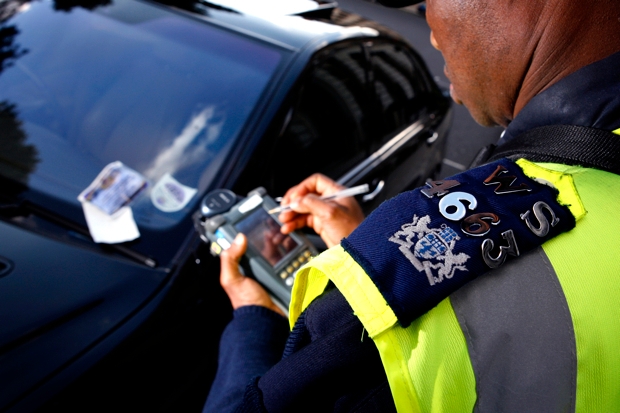No speech that Ed Miliband has made over the past five years has generated so much derision on the right as when he divided capitalists into ‘predators and producers’. That was because everyone knows there is a lot of truth in Ed’s analysis. And worse, the legal system seems to support the predators.
Today, a company called ParkingEye won a victory in the Appeal Court against Barry Beavis, a fish and chip shop owner, whom it had ‘fined’ £85 for overstaying a two-hour limit in one of its car parks in Chelmsford. Mr Beavis refused to pay the charge – which was not really a fine but simply an invoice – on the grounds that it was excessive. The court ruled that the charge was a ‘commercially-justified deterrent’ that was ‘not extravagant or unconscionable’, and that Mr Beavis must now pay an increased charge of £150.
Others might prefer to see it as sharp practice, a bit like Ryanair’s charges for overweight baggage or for printing out a boarding pass at the airport. It has become a rather dubious business model: to rake in large fees from people you have managed to catch out by failing to observe some small condition in the contract. In the case of a car park, it is not unreasonable to ask extra from someone who pays for two hours and stays for three, but what is the justification in it being more than a pro-rata charge? The sharp practice is underlined by the term ‘PCN’ used by parking companies. It stands for ‘parking charge notice’, but it cannot be a coincidence that it happens to have the same acronym as ‘penalty charge notice’ – which is a fine levied by the police or some other public body.
Disgracefully, DVLA aids this sort of practice. When wheel-clamping on public land was banned in 2012, parking companies were allowed instead to purchase the home addresses of motorists whom they had photographed in car parks so that they can pursue them for parking charges in the civil courts.
Mr Beavis can appeal to the Supreme Court. But maybe a better, and more financially rewarding, way to tackle parking cowboys is to play them at their own game. If you receive a letter from them asking for money, why not write back and tell them that from now on you are introducing a ‘communication handling fee’ for any correspondence. If they write to you again they agree to pay a fee of £85.
Now that the Appeal Court has decided that speculative invoices for spurious charges are enforceable in court, your communication handling fee will carry no less weight than their parking charge.







Comments